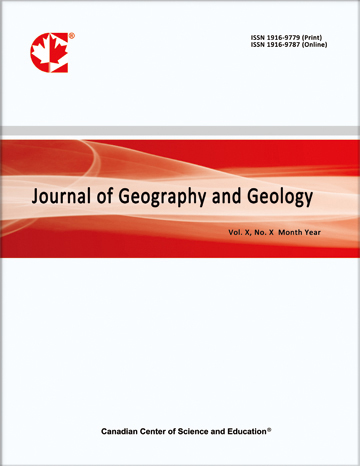The Social Geography of Women’s Attitudes toward Wife-beating in Ethiopia: A Contribution Towards Proper Application of Spatial Statistics
- Aynalem Adugna
Abstract
Spatial statistical measures have been applied to Ethiopia’s Demographic and Health Survey data (EDHS), mostly at the national level. However, there is concern that most applications violate basic principles of statistics regarding autocorrelation, or are not cognizant of the first law of geography which states that all things are related but near things are more related. This study investigates local variations in attitudes toward wife-beating in Ethiopia with education as the main correlate. It does so by using a spatial measure known as the geographically weighted regression (GWR) which is more appropriate in conditions of geographic non-stationarity than the ordinary least squares regression (OLS). Equally importantly, it examines the appropriateness of existing OLS-based spatial studies of EDHS data. We found that most studies inappropriately applied OLS despite findings of spatially autocorrelated data. The GWR model showed an association between acceptance of wife-beating and educational status. It also generated a list of twelve sampling clusters where most women respondents stated that wife-beating was acceptable while admitting to having had no formal education, and where local R2s exceeded 0.5 in GWR modeling involving 72 nearest neighbors per sampling cluster. An education-focused bi-variate rather than multi-variate GWR avoided issues of multicollinearity while keeping the model simple and its results actionable. Although the majority of the twelve sampling clusters are in Harari Wereda and Kilil, which got their name from members of the Harari ethnic group that are predominantly Muslim, it is difficult to pinpoint which factor or set of factors can be cited as causally associated with characteristics that placed them on the list. The study makes methodological contributions to spatial studies of sociodemographic characteristics of populations, especially those in developing countries such as Ethiopia where local factors show significant geographic variations. It also adds to the literature on applied geographically weighted regression.
- Full Text:
 PDF
PDF
- DOI:10.5539/jgg.v15n2p16
Journal Metrics
(The data was calculated based on Google Scholar Citations)
Google-based Impact Factor (2018): 11.90
h-index (January 2018): 17
i10-index (January 2018): 36
h5-index (January 2018): 13
h5-median(January 2018): 15
Index
- BASE (Bielefeld Academic Search Engine)
- Bibliography and Index of Geology
- CiteFactor
- CNKI Scholar
- Educational Research Abstracts
- Excellence in Research for Australia (ERA)
- GeoRef
- Google Scholar
- LOCKSS
- NewJour
- Norwegian Centre for Research Data (NSD)
- Open J-Gate
- PKP Open Archives Harvester
- SHERPA/RoMEO
- Standard Periodical Directory
- Ulrich's
- Universe Digital Library
- WorldCat
Contact
- Lesley LuoEditorial Assistant
- jgg@ccsenet.org
